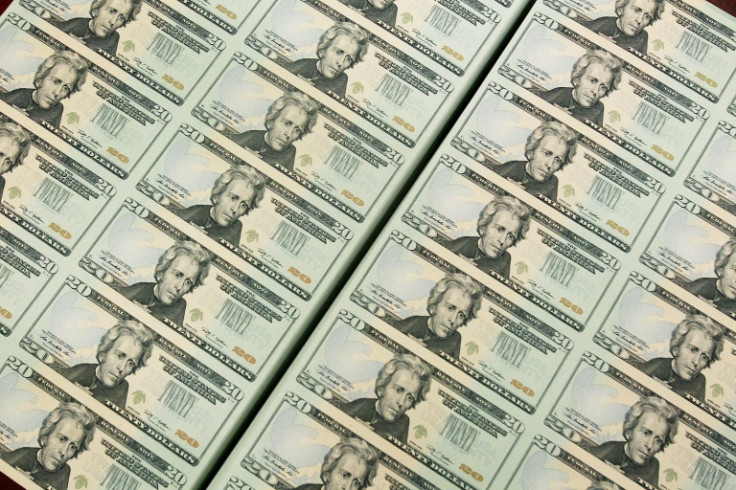Pound drops more than 1% as Bank of England steps into bond market
Sterling fell more than 1% against the dollar and euro on Wednesday after the Bank of England said it would step in to calm the UK's frenzied bond markets.
Sterling fell more than 1% against the dollar and euro on Wednesday after the Bank of England said it would step in to calm the UK's frenzied bond markets.
The pound was on track for its biggest monthly fall since October 2008, just after Lehman Brothers collapsed.
The Bank said it will carry out temporary purchases of bonds and postpone the planned start of its gilt sale programme. It will snap up long-dated UK government bonds from Wednesday, it said, and buy as many as necessary to calm the market.
Sterling was last down 1.41% to $1.0586, after hitting a session low of $1.0539. The euro was up 1.25% against the pound at 90.53 pence.
The Bank's dramatic move came after a morning of disorder in the gilt market. The BOE said it could not allow the dysfunction to continue, or UK financial stability would be at risk.
UK financial markets have cratered in recent days after new Finance Minister Kwasi Kwarteng announced plans to slash taxes and ramp up borrowing.
The fiscal statement - and Kwarteng's vow that there was more to come - shocked investors and sent the pound crashing on Monday to a record low of $1.0327.
But UK government bonds have come under the heaviest pressure, with prices tumbling and yields soaring.
However, the Bank's intervention appeared to calm the market on Wednesday, at least temporarily. The yield on the 30-year benchmark gilt fell by more than 50 basis points at one point.
Kenneth Broux, currency strategist at Societe Generale, said the Bank had to intervene because "confidence has totally evaporated".
"The surge in bond yields threatens the housing market and broader economy," he said.
Chris Turner, head of markets at ING, said many traders remained pessimistic about sterling. He said the BOE's intervention "effectively provides room for the government to continue with its aggressive fiscal programme."
"Overall we would favour a little more sterling stability on today's intervention, but market conditions remain febrile," Turner said.
Analysts said dollar strength was also weighing heavily on the pound. Investors have rushed to the safety of the greenback this year as the global economy has slowed and market volatility has picked up.
The dollar index hit a new 20-year high of 114.78 on Wednesday, and was last up 0.39%.
"We're in the really powerful phase of a dollar rally," Turner said. "It's an inopportune time for UK policymakers to come out with an unfunded fiscal stimulus package."
Sterling has now fallen almost 22% against the dollar this year, the most since 2008, and more than 7% against the euro. It fell by more than 15% in 2016, when the Brexit vote took place.

Copyright Thomson Reuters. All rights reserved.






















